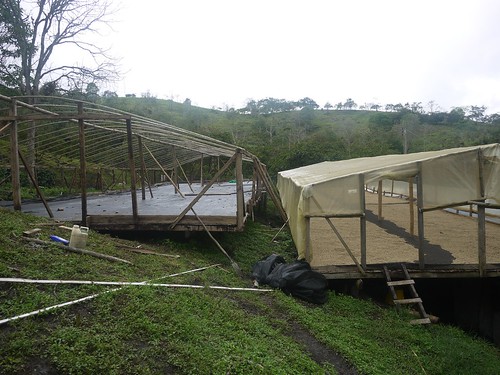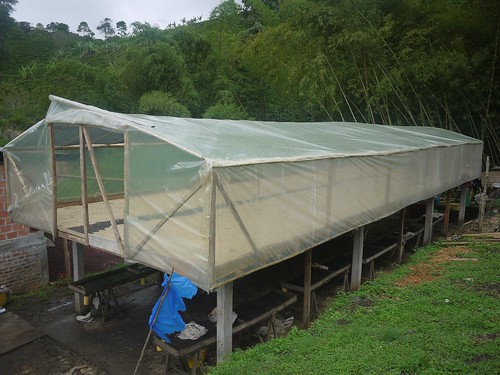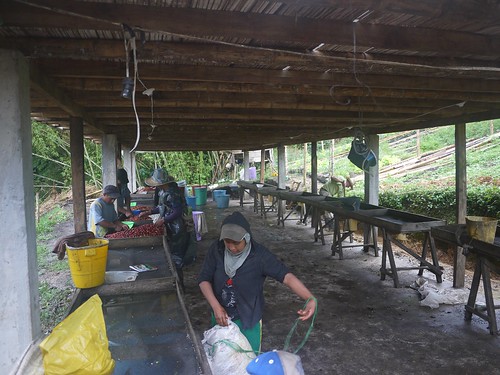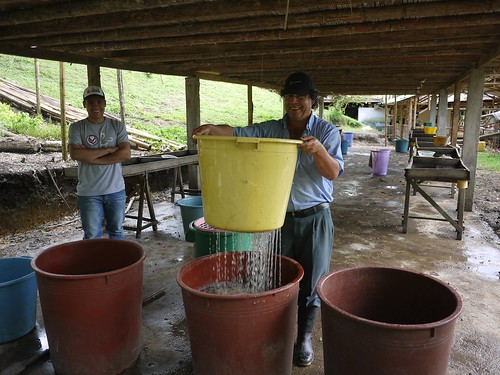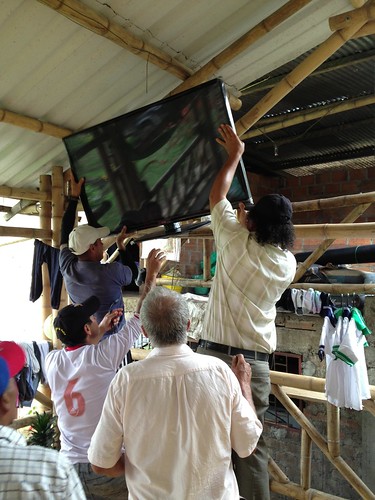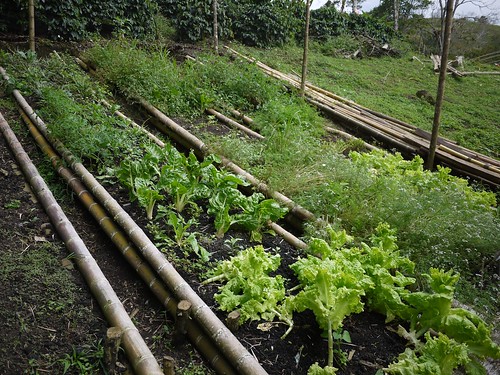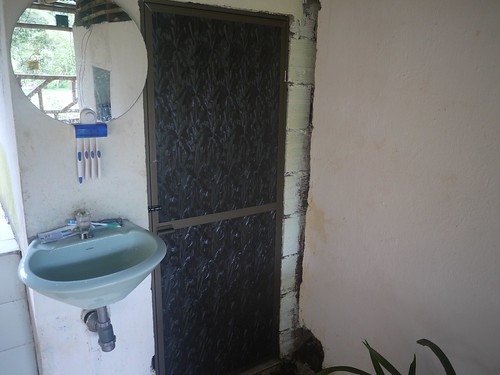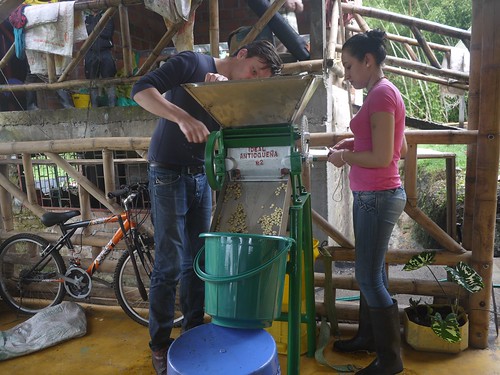When I arrived Finca Tamana on Friday last week, I got goosebumbs from seing all the improvements that Elias had done to the farm since I was there in March. During my visit in March we made a list together over things we felt was necessary to improve before the main harvest. I was extremely happy to see that Elias had followed the plan almost 100%. Here are some of the improvements that Elias has made in less than 2 months time:
Improving the dryers.
The harvest this year is expected to be slightly larger than previous years. Since we are drying all the coffees in shade, the drying process takes about 25 days as compared to the normal 6-7 days if you dry the coffee in a normal solar dryer in full sun. This means Elias needs a lot more drying space, and it was great to see that he had built 2 new large drying patios. (The floors are made of bamboo covered in nylon mesh. The roof is made of plastic and shade nets.) He had also refurbished the old first dryer that he made on the farm 3 years ago. This means he now has six large shade dryers and he is ready to properly dry all the coffee he produces this year. In previous years Elias could only dry parts of his coffee in shade due to limited drying capacity.
New sorting area.
Another big improvement for the workers on the farm is that underneeth one of the new dryers, Elias has made concrete floors for the sorting area. This means that the workers are able to stand in cover from sun and rain while they are sorting the coffee cherries and the area is a lot cleaner.
Improved flotation system.
In the same area Elias has made a new system for floating the cherries before they are sorted. He is now using a two-bucket system where the bottom one is filled with water and the second bucket is perforated and functions as a giant sieve. The pickers now put the cherries in the giant sieve, sink it down in the bucket full of water, remove the floating coffee cherries and then pull up the sieve with all the dense cherries in it. This is done prior to hand sorting the cherries on the sorting tables.
The pickers were complaining that they got cold and wet hands when they were manually removing floaters and had to dig for the good cherries in the bottom of the bucket, so this new system will improve the whole flotation process and hopefully prevent the workers from getting sick. We will also buy some rubber gloves for the pickers so that they don’t get wet and cold while doing the flotation of the cherries.
Social improvemements.
The pickers are currently getting 4000 pesos per aroba (12,5 kg of coffee cheries.) The average price in the area ranges between 3000 and 3500 pesos per aroba. The price is slightly lower as there is a lot of coffee on the trees and the picking is a lot easier during the main harvest. Also the pickers at Tamana get 3 meals a day which is not the standard on all farms, so they seem to be very happy to be working here at the moment.
One of the workers, William, who has been working at Tamana for 3 years asked if Elias could change his 30 year old 14” TV for a bigger and new TV so that they were able to watch the World Cup (football / soccer) in Brazil this year. As I am a big fan of football, I couldn’t think of a better gift to give the pickers in order to boost their motivation. Therefore after talking with Elias, I decided to give them a 51” flat screen so that they could watch Colombia play in the World Cup. Now they don’t have to use binoculars to be able to see the ball on the TV like before. My only concern is that the pickers might get too caught up in the football and forget to actually pick the coffee. But Marta, the cook told me she will make sure they are diciplined. Otherwise they will not get fed.
Marta is known for being very strict, but on this visit she seemed a lot more cheerful. Maybe because she is pregnant or it might also be because her husband Luciano bought her a washing machine and drier, which menas washing clothes will be a breeze from now on.
The new vegetable garden was thriving as well. Bella, Elias’s wife and Marta are now growing their own onions, lettuce and herbs. I will try to bring a chef to the farm next year in order to give Marta and Bella some inspiration on cooking. I am not saying their cooking is bad, because the food here is very rustic, comforting and delicious. But I think it would be great to teach them how they could become more self sustained on the farm.
For the guests that will be visiting the farm in the future, there is a small but nice and important improvement to increase the comfort on the farm. The guest toilet now has a solid door, as opposed to the old flabby curtain. This means the guests on the farm are able to have some quiet ”office time” without having to be on display.
New equipment.
Last but not least, Elias had refurbished an old hand de-pulper that he found on the farm. He was going to throw it out, as it was a total wreck, but during my last visit I offered to pay to fix it as I see a lot of benefits having a small de-pulper at hand on the farm. The results were astonishing. It looks like a brand new de-pulper again. This will make it a lot easier to do small scale experiments with processing, executing the trials with Yara (see previous blog post) and other trials we are planning.
I will write more about our experiments in the next blog post.

